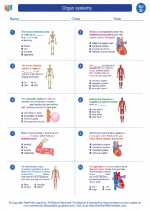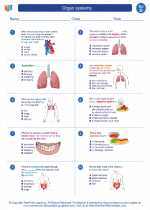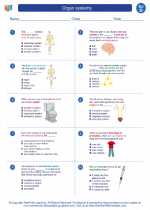Thyroid
The thyroid is a small, butterfly-shaped gland located at the base of the neck. It is part of the endocrine system and plays a key role in regulating metabolism, growth, and development.
Functions of the Thyroid
The thyroid gland produces hormones, primarily thyroxine (T4) and triiodothyronine (T3), which regulate the body's metabolic rate. These hormones also influence the function of other organs in the body, including the heart, brain, liver, and kidneys.
Thyroid Disorders
Imbalances in thyroid hormone levels can lead to various disorders, including:
- Hypothyroidism: when the thyroid gland is underactive and doesn't produce enough hormones
- Hyperthyroidism: when the thyroid gland is overactive and produces an excess of hormones
- Goiter: an enlargement of the thyroid gland due to iodine deficiency or other factors
- Thyroid cancer: the abnormal growth of cells in the thyroid gland
Thyroid Function Tests
Doctors can assess thyroid function through blood tests that measure levels of thyroid hormones (T3 and T4) and thyroid-stimulating hormone (TSH). Imaging tests, such as ultrasound or radioactive iodine scans, can also help evaluate the structure and function of the thyroid gland.
Conclusion
The thyroid gland plays a crucial role in regulating the body's metabolism and overall health. Understanding its functions and potential disorders is important for maintaining optimal well-being.
[Thyroid] Related Worksheets and Study Guides:
.◂Science Worksheets and Study Guides Fourth Grade. Organ systems

 Worksheet/Answer key
Worksheet/Answer key
 Worksheet/Answer key
Worksheet/Answer key
 Worksheet/Answer key
Worksheet/Answer key
 Vocabulary/Answer key
Vocabulary/Answer key
 Vocabulary/Answer key
Vocabulary/Answer key
 Vocabulary/Answer key
Vocabulary/Answer key
 Vocabulary/Answer key
Vocabulary/Answer key
 Vocabulary/Answer key
Vocabulary/Answer key
